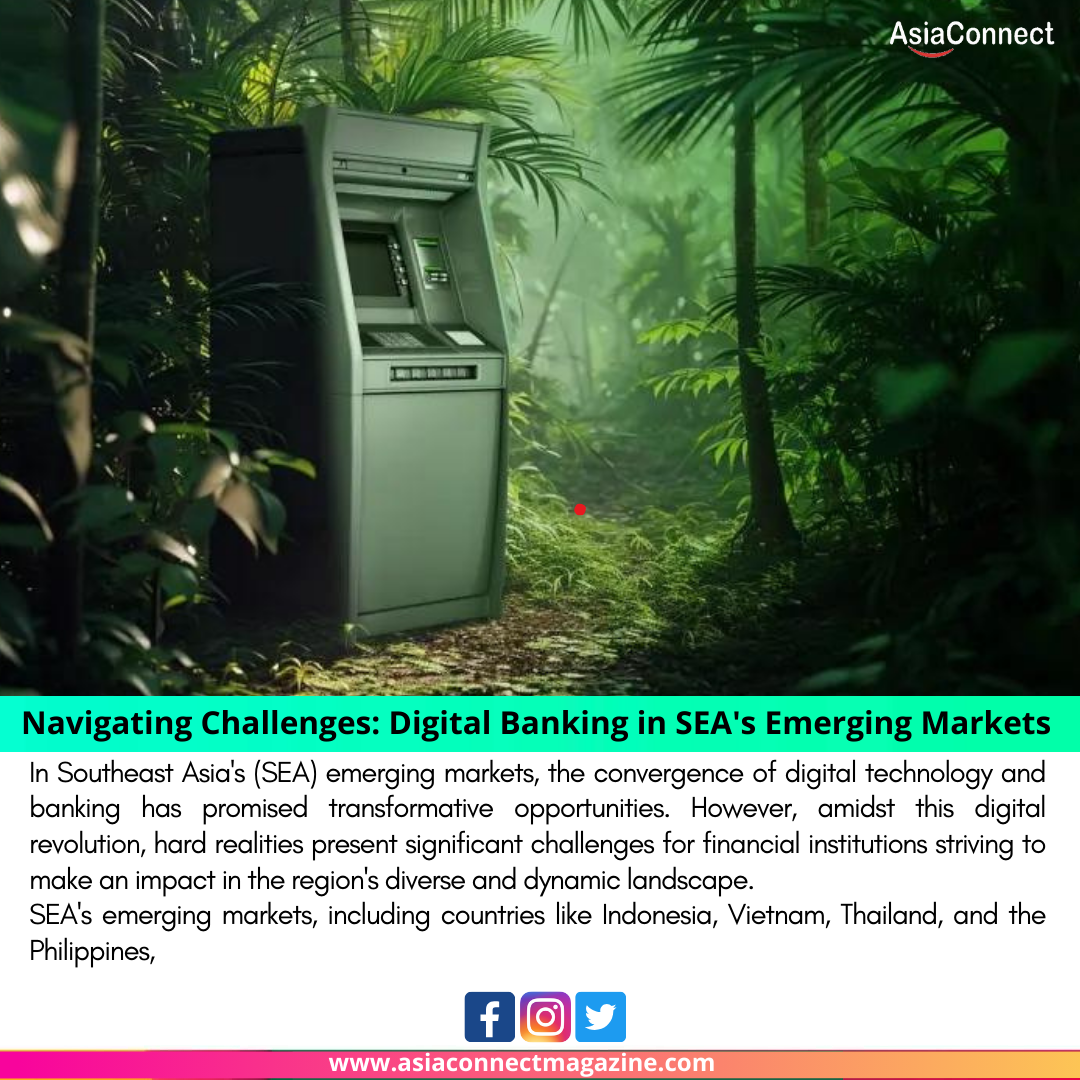In Southeast Asia’s (SEA) emerging markets, the convergence of digital technology and banking has promised transformative opportunities. However, amidst this digital revolution, hard realities present significant challenges for financial institutions striving to make an impact in the region’s diverse and dynamic landscape.
SEA’s emerging markets, including countries like Indonesia, Vietnam, Thailand, and the Philippines, boast a large population of tech-savvy consumers hungry for digital solutions. The proliferation of smartphones and internet connectivity has created a ripe environment for digital banking to thrive. As a result, traditional brick-and-mortar banks and fintech startups alike have been quick to capitalize on this trend, offering a range of digital banking services from mobile payments to online lending.
However, despite the immense potential, several hard realities have emerged, complicating the digital banking landscape in SEA’s emerging markets. One of the primary challenges is the digital divide, where significant portions of the population lack access to basic financial services, let alone digital infrastructure. Rural areas, in particular, face barriers such as poor internet connectivity and low smartphone penetration, hindering the adoption of digital banking solutions.
Moreover, regulatory complexities present formidable obstacles for digital banking providers operating in SEA’s emerging markets. Each country in the region has its own set of regulations governing financial services, with varying degrees of stringency and enforcement. Navigating this regulatory maze requires significant investment in compliance and regulatory expertise, posing a challenge for both established banks and fintech startups alike.
Additionally, cybersecurity threats loom large in SEA’s emerging markets, where data breaches and cyber attacks pose significant risks to both financial institutions and their customers. With the proliferation of digital transactions and the storage of sensitive personal information online, ensuring robust cybersecurity measures is paramount. However, many financial institutions in the region lack the resources and expertise to effectively mitigate these risks, leaving them vulnerable to cyber threats.
Furthermore, cultural and behavioral barriers also impede the widespread adoption of digital banking in SEA’s emerging markets. Despite the convenience and efficiency offered by digital banking solutions, many consumers still prefer traditional banking channels due to trust issues, security concerns, or simply a lack of familiarity with digital technology. Overcoming these cultural barriers requires targeted education and outreach efforts to build trust and confidence in digital banking services.
Despite these challenges, opportunities abound for digital banking providers willing to innovate and adapt to SEA’s emerging markets’ unique realities. Collaborative partnerships between traditional banks and fintech startups can leverage each other’s strengths to deliver innovative solutions that bridge the digital divide and address regulatory complexities. Similarly, investing in cybersecurity infrastructure and consumer education can help build trust and confidence in digital banking services, driving adoption and usage.
Moreover, the COVID-19 pandemic has accelerated the shift towards digital banking in SEA’s emerging markets, as lockdowns and social distancing measures have underscored the importance of remote banking solutions. As consumers increasingly turn to digital channels for their banking needs, financial institutions have an opportunity to capitalize on this trend and cement their position in the digital banking landscape.
In conclusion, while digital banking holds immense promise for SEA’s emerging markets, navigating the hard realities of regulatory complexities, cybersecurity threats, and cultural barriers presents significant challenges. However, with strategic investments in technology, regulatory compliance, cybersecurity, and consumer education, digital banking providers can overcome these obstacles and unlock the full potential of digital banking in SEA’s dynamic and rapidly evolving markets.





